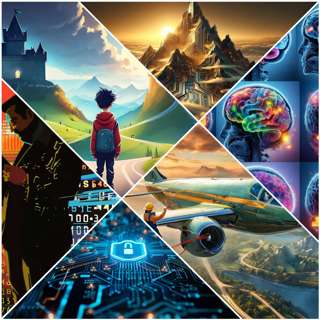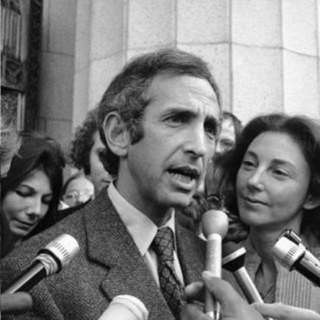
#43 Classic episode - Daniel Ellsberg on the institutional insanity that maintains nuclear doomsday machines
Rebroadcast: this episode was originally released in September 2018.In Stanley Kubrick’s iconic film Dr. Strangelove, the American president is informed that the Soviet Union has created a secret deterrence system which will automatically wipe out humanity upon detection of a single nuclear explosion in Russia. With US bombs heading towards the USSR and unable to be recalled, Dr Strangelove points out that “the whole point of this Doomsday Machine is lost if you keep it a secret – why didn’t you tell the world, eh?” The Soviet ambassador replies that it was to be announced at the Party Congress the following Monday: “The Premier loves surprises”. Daniel Ellsberg - leaker of the Pentagon Papers which helped end the Vietnam War and Nixon presidency - claims in his book The Doomsday Machine: Confessions of a Nuclear War Planner that Dr. Strangelove might as well be a documentary. After attending the film in Washington DC in 1964, he and a colleague wondered how so many details of their nuclear planning had leaked. Links to learn more, summary and full transcript. The USSR did in fact develop a doomsday machine, Dead Hand, which probably remains active today. If the system can’t contact military leaders, it checks for signs of a nuclear strike, and if it detects them, automatically launches all remaining Soviet weapons at targets across the northern hemisphere. As in the film, the Soviet Union long kept Dead Hand completely secret, eliminating any strategic benefit, and rendering it a pointless menace to humanity. You might think the United States would have a more sensible nuclear launch policy. You’d be wrong. As Ellsberg explains, based on first-hand experience as a nuclear war planner in the 50s, that the notion that only the president is able to authorize the use of US nuclear weapons is a carefully cultivated myth. The authority to launch nuclear weapons is delegated alarmingly far down the chain of command – significantly raising the chance that a lone wolf or communication breakdown could trigger a nuclear catastrophe. The whole justification for this is to defend against a ‘decapitating attack’, where a first strike on Washington disables the ability of the US hierarchy to retaliate. In a moment of crisis, the Russians might view this as their best hope of survival. Ostensibly, this delegation removes Russia’s temptation to attempt a decapitating attack – the US can retaliate even if its leadership is destroyed. This strategy only works, though, if the tell the enemy you’ve done it. Instead, since the 50s this delegation has been one of the United States most closely guarded secrets, eliminating its strategic benefit, and rendering it another pointless menace to humanity. Strategically, the setup is stupid. Ethically, it is monstrous. So – how was such a system built? Why does it remain to this day? And how might we shrink our nuclear arsenals to the point they don’t risk the destruction of civilization? Daniel explores these questions eloquently and urgently in his book. Today we cover: • Why full disarmament today would be a mistake and the optimal number of nuclear weapons to hold • How well are secrets kept in the government? • What was the risk of the first atomic bomb test? • Do we have a reliable estimate of the magnitude of a ‘nuclear winter’? Get this episode by subscribing to our podcast on the world’s most pressing problems and how to solve them: type 80,000 Hours into your podcasting app. The 80,000 Hours Podcast is produced by Keiran Harris.
18 Tammi 20222h 35min
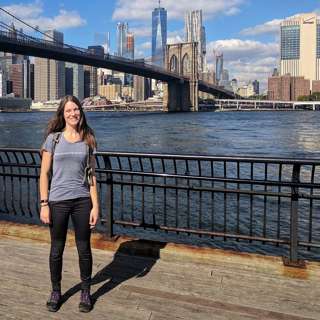
#35 Classic episode - Tara Mac Aulay on the audacity to fix the world without asking permission
Rebroadcast: this episode was originally released in June 2018. How broken is the world? How inefficient is a typical organisation? Looking at Tara Mac Aulay’s life, the answer seems to be ‘very’. At 15 she took her first job - an entry-level position at a chain restaurant. Rather than accept her place, Tara took it on herself to massively improve the store’s shambolic staff scheduling and inventory management. After cutting staff costs 30% she was quickly promoted, and at 16 sent in to overhaul dozens of failing stores in a final effort to save them from closure. That’s just the first in a startling series of personal stories that take us to a hospital drug dispensary where pharmacists are wasting a third of their time, a chemotherapy ward in Bhutan that’s killing its patients rather than saving lives, and eventually the Centre for Effective Altruism, where Tara becomes CEO and leads it through start-up accelerator Y Combinator. In this episode Tara shows how the ability to do practical things, avoid major screw-ups, and design systems that scale, is both rare and precious. Links to learn more, summary and full transcript. People with an operations mindset spot failures others can't see and fix them before they bring an organisation down. This kind of resourcefulness can transform the world by making possible critical projects that would otherwise fall flat on their face. But as Tara's experience shows they need to figure out what actually motivates the authorities who often try to block their reforms. We explore how people with this skillset can do as much good as possible, what 80,000 Hours got wrong in our article 'Why operations management is one of the biggest bottlenecks in effective altruism’, as well as: • Tara’s biggest mistakes and how to deal with the delicate politics of organizational reform. • How a student can save a hospital millions with a simple spreadsheet model. • The sociology of Bhutan and how medicine in the developing world often makes things worse rather than better. • What most people misunderstand about operations, and how to tell if you have what it takes. • And finally, operations jobs people should consider applying for. Get this episode by subscribing to our podcast on the world’s most pressing problems and how to solve them: search for '80,000 Hours' in your podcasting app. The 80,000 Hours Podcast is produced by Keiran Harris.
10 Tammi 20221h 23min
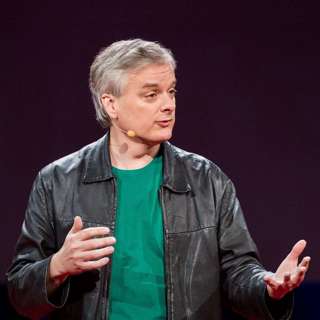
#67 Classic episode – David Chalmers on the nature and ethics of consciousness
Rebroadcast: this episode was originally released in December 2019. What is it like to be you right now? You're seeing this text on the screen, smelling the coffee next to you, and feeling the warmth of the cup. There’s a lot going on in your head — your conscious experience. Now imagine beings that are identical to humans, but for one thing: they lack this conscious experience. If you spill your coffee on them, they’ll jump like anyone else, but inside they'll feel no pain and have no thoughts: the lights are off. The concept of these so-called 'philosophical zombies' was popularised by today’s guest — celebrated philosophy professor David Chalmers — in order to explore the nature of consciousness. In a forthcoming book he poses a classic 'trolley problem': "Suppose you have a conscious human on one train track, and five non-conscious humanoid zombies on another. If you do nothing, a trolley will hit and kill the conscious human. If you flip a switch to redirect the trolley, you can save the conscious human, but in so doing kill the five non-conscious humanoid zombies. What should you do?" Many people think you should divert the trolley, precisely because the lack of conscious experience means the moral status of the zombies is much reduced or absent entirely. So, which features of consciousness qualify someone for moral consideration? One view is that the only conscious states that matter are those that have a positive or negative quality, like pleasure and suffering. But Dave’s intuitions are quite different. Links to learn more, summary and full transcript. Instead of zombies he asks us to consider 'Vulcans', who can see and hear and reflect on the world around them, but are incapable of experiencing pleasure or pain. Now imagine a further trolley problem: suppose you have a normal human on one track, and five Vulcans on the other. Should you divert the trolley to kill the five Vulcans in order to save the human? Dave firmly believes the answer is no, and if he's right, pleasure and suffering can’t be the only things required for moral status. The fact that Vulcans are conscious in other ways must matter in itself. Dave is one of the world's top experts on the philosophy of consciousness. He helped return the question 'what is consciousness?' to the centre stage of philosophy with his 1996 book 'The Conscious Mind', which argued against then-dominant materialist theories of consciousness. This comprehensive interview, at over four hours long, outlines each contemporary theory of consciousness, what they have going for them, and their likely ethical implications. Those theories span the full range from illusionism, the idea that consciousness is in some sense an 'illusion', to panpsychism, according to which it's a fundamental physical property present in all matter. These questions are absolutely central for anyone who wants to build a positive future. If insects were conscious our treatment of them could already be an atrocity. If computer simulations of people will one day be conscious, how will we know, and how should we treat them? And what is it about consciousness that matters, if anything? Dave Chalmers is probably the best person on the planet to ask these questions, and Rob & Arden cover this and much more over the course of what is both our longest ever episode, and our personal favourite so far. Get this episode by subscribing to our show on the world’s most pressing problems and how to solve them: search for 80,000 Hours in your podcasting app. The 80,000 Hours Podcast is produced by Keiran Harris.
3 Tammi 20224h 42min
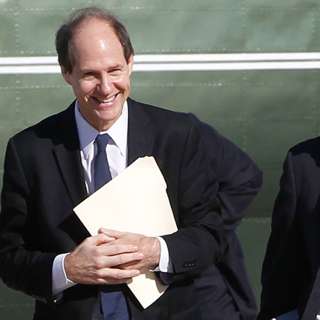
#59 Classic episode - Cass Sunstein on how change happens, and why it's so often abrupt & unpredictable
Rebroadcast: this episode was originally released in June 2019. It can often feel hopeless to be an activist seeking social change on an obscure issue where most people seem opposed or at best indifferent to you. But according to a new book by Professor Cass Sunstein, they shouldn't despair. Large social changes are often abrupt and unexpected, arising in an environment of seeming public opposition. The Communist Revolution in Russia spread so swiftly it confounded even Lenin. Seventy years later the Soviet Union collapsed just as quickly and unpredictably. In the modern era we have gay marriage, #metoo and the Arab Spring, as well as nativism, Euroskepticism and Hindu nationalism. How can a society that so recently seemed to support the status quo bring about change in years, months, or even weeks? Sunstein — co-author of Nudge, Obama White House official, and by far the most cited legal scholar of the late 2000s — aims to unravel the mystery and figure out the implications in his new book How Change Happens. He pulls together three phenomena which social scientists have studied in recent decades: preference falsification, variable thresholds for action, and group polarisation. If Sunstein is to be believed, together these are a cocktail for social shifts that are chaotic and fundamentally unpredictable.Links to learn more, summary and full transcript. In brief, people constantly misrepresent their true views, even to close friends and family. They themselves aren't quite sure how socially acceptable their feelings would have to become, before they revealed them, or joined a campaign for social change. And a chance meeting between a few strangers can be the spark that radicalises a handful of people, who then find a message that can spread their views to millions. According to Sunstein, it's "much, much easier" to create social change when large numbers of people secretly or latently agree with you. But 'preference falsification' is so pervasive that it's no simple matter to figure out when that's the case. In today's interview, we debate with Sunstein whether this model of cultural change is accurate, and if so, what lessons it has for those who would like to shift the world in a more humane direction. We discuss: • How much people misrepresent their views in democratic countries. • Whether the finding that groups with an existing view tend towards a more extreme position would stand up in the replication crisis. • When is it justified to encourage your own group to polarise? • Sunstein's difficult experiences as a pioneer of animal rights law. • Whether activists can do better by spending half their resources on public opinion surveys. • Should people be more or less outspoken about their true views? • What might be the next social revolution to take off? • How can we learn about social movements that failed and disappeared? • How to find out what people really think. Get this episode by subscribing to our podcast on the world’s most pressing problems: type 80,000 Hours into your podcasting app. Or read the transcript on our site. The 80,000 Hours Podcast is produced by Keiran Harris.
27 Joulu 20211h 43min

#119 – Andrew Yang on our very long-term future, and other topics most politicians won’t touch
Andrew Yang — past presidential candidate, founder of the Forward Party, and leader of the 'Yang Gang' — is kind of a big deal, but is particularly popular among listeners to The 80,000 Hours Podcast. Maybe that's because he's willing to embrace topics most politicians stay away from, like universal basic income, term limits for members of Congress, or what might happen when AI replaces whole industries. Links to learn more, summary and full transcript. But even those topics are pretty vanilla compared to our usual fare on The 80,000 Hours Podcast. So we thought it’d be fun to throw Andrew some stranger or more niche questions we hadn't heard him comment on before, including: 1. What would your ideal utopia in 500 years look like? 2. Do we need more public optimism today? 3. Is positively influencing the long-term future a key moral priority of our time? 4. Should we invest far more to prevent low-probability risks? 5. Should we think of future generations as an interest group that's disenfranchised by their inability to vote? 6. The folks who worry that advanced AI is going to go off the rails and destroy us all... are they crazy, or a valuable insurance policy? 7. Will people struggle to live fulfilling lives once AI systems remove the economic need to 'work'? 8. Andrew is a huge proponent of ranked-choice voting. But what about 'approval voting' — where basically you just get to say “yea” or “nay” to every candidate that's running — which some experts prefer? 9. What would Andrew do with a billion dollars to keep the US a democracy? 10. What does Andrew think about the effective altruism community? 11. What's one thing we should do to reduce the risk of nuclear war? 12. Will Andrew's new political party get Trump elected by splitting the vote, the same way Nader got Bush elected back in 2000? As it turns out, Rob and Andrew agree on a lot, so the episode is less a debate than a chat about ideas that aren’t mainstream yet... but might be one day. They also talk about: • Andrew’s views on alternative meat • Whether seniors have too much power in American society • Andrew’s DC lobbying firm on behalf of humanity • How the rest of the world could support the US • The merits of 18-year term limits • What technologies Andrew is most excited about • How much the US should spend on foreign aid • Persistence and prevalence of inflation in the US economy • And plenty more Chapters:Rob’s intro (00:00:00)The interview begins (00:01:38)Andrew’s hopes for the year 2500 (00:03:10)Tech over the next century (00:07:03)Utopia for realists (00:10:41)Most likely way humanity fails (00:12:43)What Andrew would do with a billion dollars (00:14:44)Approval voting vs. ranked-choice voting (00:19:51)The worry that third party candidates could cause harm (00:21:12)Investment in existential risk reduction (00:25:18)Future generations as a disenfranchised interest group (00:30:37)Humanity Forward (00:32:05)Best way the rest of the world could support the US (00:37:17)Recent advances in AI (00:39:56)Artificial general intelligence (00:46:38)The Windfall Clause (00:49:39)The alignment problem (00:53:02)18-year term limits (00:56:21)Effective altruism and longtermism (01:00:44)Persistence and prevalence of inflation in the US economy (01:01:25)Downsides of policies Andrew advocates for (01:02:08)What Andrew would have done differently with COVID (01:04:54)Fighting for attention in the media (01:09:25)Right ballpark level of foreign aid for the US (01:11:15)Government science funding (01:11:58)Nuclear weapons policy (01:15:06)US-China relationship (01:16:20)Human challenge trials (01:18:59)Forecasting accuracy (01:20:17)Upgrading public schools (01:21:41)Producer: Keiran HarrisAudio mastering: Ben CordellTranscriptions: Katy Moore
20 Joulu 20211h 25min
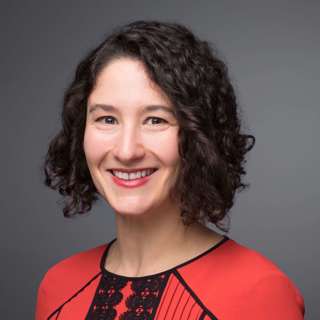
#118 – Jaime Yassif on safeguarding bioscience to prevent catastrophic lab accidents and bioweapons development
If a rich country were really committed to pursuing an active biological weapons program, there’s not much we could do to stop them. With enough money and persistence, they’d be able to buy equipment, and hire people to carry out the work. But what we can do is intervene before they make that decision. Today’s guest, Jaime Yassif — Senior Fellow for global biological policy and programs at the Nuclear Threat Initiative (NTI) — thinks that stopping states from wanting to pursue dangerous bioscience in the first place is one of our key lines of defence against global catastrophic biological risks (GCBRs). Links to learn more, summary and full transcript. It helps to understand why countries might consider developing biological weapons. Jaime says there are three main possible reasons: 1. Fear of what their adversary might be up to 2. Belief that they could gain a tactical or strategic advantage, with limited risk of getting caught 3. Belief that even if they are caught, they are unlikely to be held accountable In response, Jaime has developed a three-part recipe to create systems robust enough to meaningfully change the cost-benefit calculation. The first is to substantially increase transparency. If countries aren’t confident about what their neighbours or adversaries are actually up to, misperceptions could lead to arms races that neither side desires. But if you know with confidence that no one around you is pursuing a biological weapons programme, you won’t feel motivated to pursue one yourself. The second is to strengthen the capabilities of the United Nations’ system to investigate the origins of high-consequence biological events — whether naturally emerging, accidental or deliberate — and to make sure that the responsibility to figure out the source of bio-events of unknown origin doesn’t fall between the cracks of different existing mechanisms. The ability to quickly discover the source of emerging pandemics is important both for responding to them in real time and for deterring future bioweapons development or use. And the third is meaningful accountability. States need to know that the consequences for getting caught in a deliberate attack are severe enough to make it a net negative in expectation to go down this road in the first place. But having a good plan and actually implementing it are two very different things, and today’s episode focuses heavily on the practical steps we should be taking to influence both governments and international organisations, like the WHO and UN — and to help them maximise their effectiveness in guarding against catastrophic biological risks. Jaime and Rob explore NTI’s current proposed plan for reducing global catastrophic biological risks, and discuss: • The importance of reducing emerging biological risks associated with rapid technology advances • How we can make it a lot harder for anyone to deliberately or accidentally produce or release a really dangerous pathogen • The importance of having multiples theories of risk reduction • Why Jaime’s more focused on prevention than response • The history of the Biological Weapons Convention • Jaime’s disagreements with the effective altruism community • And much more And if you might be interested in dedicating your career to reducing GCBRs, stick around to the end of the episode to get Jaime’s advice — including on how people outside of the US can best contribute, and how to compare career opportunities in academia vs think tanks, and nonprofits vs national governments vs international orgs. Chapters:Rob’s intro (00:00:00)The interview begins (00:02:32)Categories of global catastrophic biological risks (00:05:24)Disagreements with the effective altruism community (00:07:39)Stopping the first person from getting infected (00:11:51)Shaping intent (00:15:51)Verification and the Biological Weapons Convention (00:25:31)Attribution (00:37:15)How to actually implement a new idea (00:50:54)COVID-19: natural pandemic or lab leak? (00:53:31)How much can we rely on traditional law enforcement to detect terrorists? (00:58:20)Constraining capabilities (01:01:24)The funding landscape (01:06:56)Oversight committees (01:14:20)Just winning the argument (01:20:17)NTI’s vision (01:27:39)Suppliers of goods and services (01:33:24)Publishers (01:39:41)Biggest weaknesses of NTI platform (01:42:29)Careers (01:48:31)How people outside of the US can best contribute (01:54:10)Academia vs think tanks vs nonprofits vs government (01:59:21)International cooperation (02:05:40)Best things about living in the US, UK, China, and Israel (02:11:16)Producer: Keiran HarrisAudio mastering: Ryan KesslerTranscriptions: Katy Moore
13 Joulu 20212h 15min
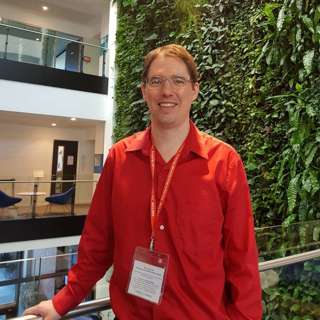
#117 – David Denkenberger on using paper mills and seaweed to feed everyone in a catastrophe, ft Sahil Shah
If there's a nuclear war followed by nuclear winter, and the sun is blocked out for years, most of us are going to starve, right? Well, currently, probably we would, because humanity hasn't done much to prevent it. But it turns out that an ounce of forethought might be enough for most people to get the calories they need to survive, even in a future as grim as that one.Today's guest is engineering professor Dave Denkenberger, who co-founded the Alliance to Feed the Earth in Disasters (ALLFED), which has the goal of finding ways humanity might be able to feed itself for years without relying on the sun. Over the last seven years, Dave and his team have turned up options from the mundane, like mushrooms grown on rotting wood, to the bizarre, like bacteria that can eat natural gas or electricity itself.Links to learn more, summary and full transcript. One option stands out as potentially able to feed billions: finding a way to eat wood ourselves. Even after a disaster, a huge amount of calories will be lying around, stored in wood and other plant cellulose. The trouble is that, even though cellulose is basically a lot of sugar molecules stuck together, humans can't eat wood. But we do know how to turn wood into something people can eat. We can grind wood up in already existing paper mills, then mix the pulp with enzymes that break the cellulose into sugar and the hemicellulose into other sugars. Another option that shows a lot of promise is seaweed. Buffered by the water around them, ocean life wouldn't be as affected by the lower temperatures resulting from the sun being obscured. Sea plants are also already used to growing in low light, because the water above them already shades them to some extent. Dave points out that "there are several species of seaweed that can still grow 10% per day, even with the lower light levels in nuclear winter and lower temperatures. ... Not surprisingly, with that 10% growth per day, assuming we can scale up, we could actually get up to 160% of human calories in less than a year." Of course it will be easier to scale up seaweed production if it's already a reasonably sized industry. At the end of the interview, we're joined by Sahil Shah, who is trying to expand seaweed production in the UK with his business Sustainable Seaweed. While a diet of seaweed and trees turned into sugar might not seem that appealing, the team at ALLFED also thinks several perfectly normal crops could also make a big contribution to feeding the world, even in a truly catastrophic scenario. Those crops include potatoes, canola, and sugar beets, which are currently grown in cool low-light environments. Many of these ideas could turn out to be misguided or impractical in real-world conditions, which is why Dave and ALLFED are raising money to test them out on the ground. They think it's essential to show these techniques can work so that should the worst happen, people turn their attention to producing more food rather than fighting one another over the small amount of food humanity has stockpiled. In this conversation, Rob, Dave, and Sahil discuss the above, as well as: • How much one can trust the sort of economic modelling ALLFED does • Bacteria that turn natural gas or electricity into protein • How to feed astronauts in space with nuclear power • What individuals can do to prepare themselves for global catastrophes • Whether we should worry about humanity running out of natural resources • How David helped save $10 billion worth of electricity through energy efficiency standards • And much moreChapters:Rob’s intro (00:00:00)The interview begins (00:02:36)Resilient foods recap (00:04:27)Cost effectiveness recap (00:08:07)Turning fiber or wood or cellulose into sugar (00:10:30)Redirecting human-edible food away from animals (00:22:46)Seaweed production (00:26:33)Crops that can handle lower temperatures or lower light (00:35:24)Greenhouses (00:40:51)How much to trust this economic modeling (00:43:50)Global cooperation (00:51:16)People feeding themselves using these methods (00:57:15)NASA and ALLFED (01:04:47)Kinds of catastrophes (01:15:16)Is New Zealand overrated? (01:25:35)Should listeners be doing anything to prepare for possible disasters? (01:28:43)Cost effectiveness of work on EMPs (01:30:43)The future of ALLFED (01:33:34)Opportunities at ALLFED (01:40:49)Why Dave is optimistic around bigger-picture scarcity issues (01:46:58)Energy return on energy invested (01:56:36)Nitrogen and phosphorus (02:03:25)Energy and food prices (02:07:18)Sustainable Seaweed with Sahil Shah (02:21:44)Locusts (02:38:33)The effect of COVID on food supplies (02:44:01)How much food prices would spike in a disaster (02:50:46)How Dave helped to save ~$10 billion worth of energy (02:56:33)What it’s like to live in Alaska (03:03:18)Producer: Keiran HarrisAudio mastering: Ben CordellTranscriptions: Katy Moore
29 Marras 20213h 8min
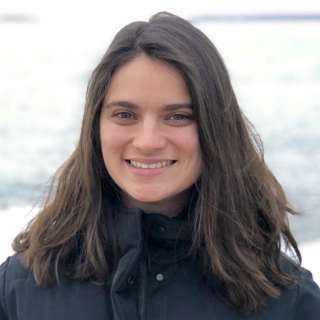
#116 – Luisa Rodriguez on why global catastrophes seem unlikely to kill us all
If modern human civilisation collapsed — as a result of nuclear war, severe climate change, or a much worse pandemic than COVID-19 — billions of people might die.That's terrible enough to contemplate. But what’s the probability that rather than recover, the survivors would falter and humanity would actually disappear for good?It's an obvious enough question, but very few people have spent serious time looking into it -- possibly because it cuts across history, economics, and biology, among many other fields. There's no Disaster Apocalypse Studies department at any university, and governments have little incentive to plan for a future in which their country probably no longer even exists.The person who may have spent the most time looking at this specific question is Luisa Rodriguez — who has conducted research at Rethink Priorities, Oxford University's Future of Humanity Institute, the Forethought Foundation, and now here, at 80,000 Hours.Links to learn more, summary and full transcript. She wrote a series of articles earnestly trying to foresee how likely humanity would be to recover and build back after a full-on civilisational collapse. There are a couple of main stories people put forward for how a catastrophe like this would kill every single human on Earth — but Luisa doesn’t buy them. Story 1: Nuclear war has led to nuclear winter. There's a 10-year period during which a lot of the world is really inhospitable to agriculture. The survivors just aren't able to figure out how to feed themselves in the time period, so everyone dies of starvation or cold. Why Luisa doesn’t buy it: Catastrophes will almost inevitably be non-uniform in their effects. If 80,000 people survive, they’re not all going to be in the same city — it would look more like groups of 5,000 in a bunch of different places. People in some places will starve, but those in other places, such as New Zealand, will be able to fish, eat seaweed, grow potatoes, and find other sources of calories. It’d be an incredibly unlucky coincidence if the survivors of a nuclear war -- likely spread out all over the world -- happened to all be affected by natural disasters or were all prohibitively far away from areas suitable for agriculture (which aren’t the same areas you’d expect to be attacked in a nuclear war). Story 2: The catastrophe leads to hoarding and violence, and in addition to people being directly killed by the conflict, it distracts everyone so much from the key challenge of reestablishing agriculture that they simply fail. By the time they come to their senses, it’s too late -- they’ve used up too much of the resources they’d need to get agriculture going again. Why Luisa doesn’t buy it: We‘ve had lots of resource scarcity throughout history, and while we’ve seen examples of conflict petering out because basic needs aren’t being met, we’ve never seen the reverse. And again, even if this happens in some places -- even if some groups fought each other until they literally ended up starving to death — it would be completely bizarre for it to happen to every group in the world. You just need one group of around 300 people to survive for them to be able to rebuild the species. In this wide-ranging and free-flowing conversation, Luisa and Rob also cover: • What the world might actually look like after one of these catastrophes • The most valuable knowledge for survivors • How fast populations could rebound • ‘Boom and bust’ climate change scenarios • And much more Chapters:Rob’s intro (00:00:00)The interview begins (00:02:37)Recovering from a serious collapse of civilization (00:11:41)Existing literature (00:14:52)Fiction (00:20:42)Types of disasters (00:23:13)What the world might look like after a catastrophe (00:29:09)Nuclear winter (00:34:34)Stuff that might stick around (00:38:58)Grace period (00:42:39)Examples of human ingenuity in tough situations (00:48:33)The most valuable knowledge for survivors (00:57:23)Would people really work together? (01:09:00)Radiation (01:27:08)Learning from the worst pandemics (01:31:40)Learning from fallen civilizations (01:36:30)Direct extinction (01:45:30)Indirect extinction (02:01:53)Rapid recovery vs. slow recovery (02:05:01)Risk of culture shifting against science and tech (02:15:33)Resource scarcity (02:23:07)How fast could populations rebound (02:37:07)Implications for what we ought to do right now (02:43:52)How this work affected Luisa’s views (02:54:00)Boom and bust climate change scenarios (02:57:06)Stagnation and cold wars (03:01:18)How Luisa met her biological father (03:18:23)If Luisa had to change careers (03:40:38)Producer: Keiran HarrisAudio mastering: Ben CordellTranscriptions: Katy Moore
19 Marras 20213h 45min
